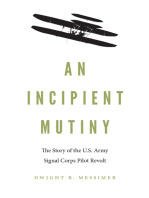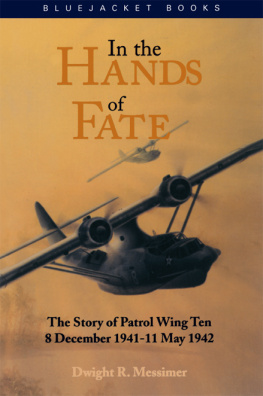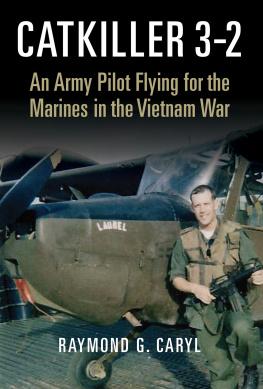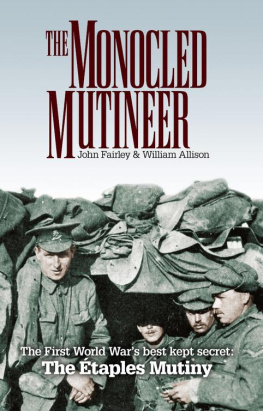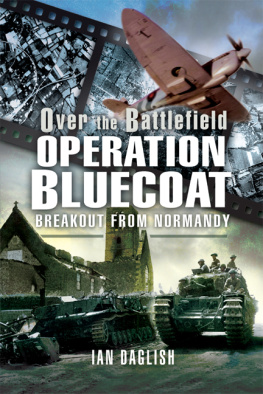Dwight R. Messimer - An Incipient Mutiny: The Story of the U.S. Army Signal Corps Pilot Revolt
Here you can read online Dwight R. Messimer - An Incipient Mutiny: The Story of the U.S. Army Signal Corps Pilot Revolt full text of the book (entire story) in english for free. Download pdf and epub, get meaning, cover and reviews about this ebook. genre: Science. Description of the work, (preface) as well as reviews are available. Best literature library LitArk.com created for fans of good reading and offers a wide selection of genres:
Romance novel
Science fiction
Adventure
Detective
Science
History
Home and family
Prose
Art
Politics
Computer
Non-fiction
Religion
Business
Children
Humor
Choose a favorite category and find really read worthwhile books. Enjoy immersion in the world of imagination, feel the emotions of the characters or learn something new for yourself, make an fascinating discovery.
- Book:An Incipient Mutiny: The Story of the U.S. Army Signal Corps Pilot Revolt
- Author:
- Genre:
- Rating:3 / 5
- Favourites:Add to favourites
- Your mark:
- 60
- 1
- 2
- 3
- 4
- 5
An Incipient Mutiny: The Story of the U.S. Army Signal Corps Pilot Revolt: summary, description and annotation
We offer to read an annotation, description, summary or preface (depends on what the author of the book "An Incipient Mutiny: The Story of the U.S. Army Signal Corps Pilot Revolt" wrote himself). If you haven't found the necessary information about the book — write in the comments, we will try to find it.
An Incipient Mutiny: The Story of the U.S. Army Signal Corps Pilot Revolt — read online for free the complete book (whole text) full work
Below is the text of the book, divided by pages. System saving the place of the last page read, allows you to conveniently read the book "An Incipient Mutiny: The Story of the U.S. Army Signal Corps Pilot Revolt" online for free, without having to search again every time where you left off. Put a bookmark, and you can go to the page where you finished reading at any time.
Font size:
Interval:
Bookmark:
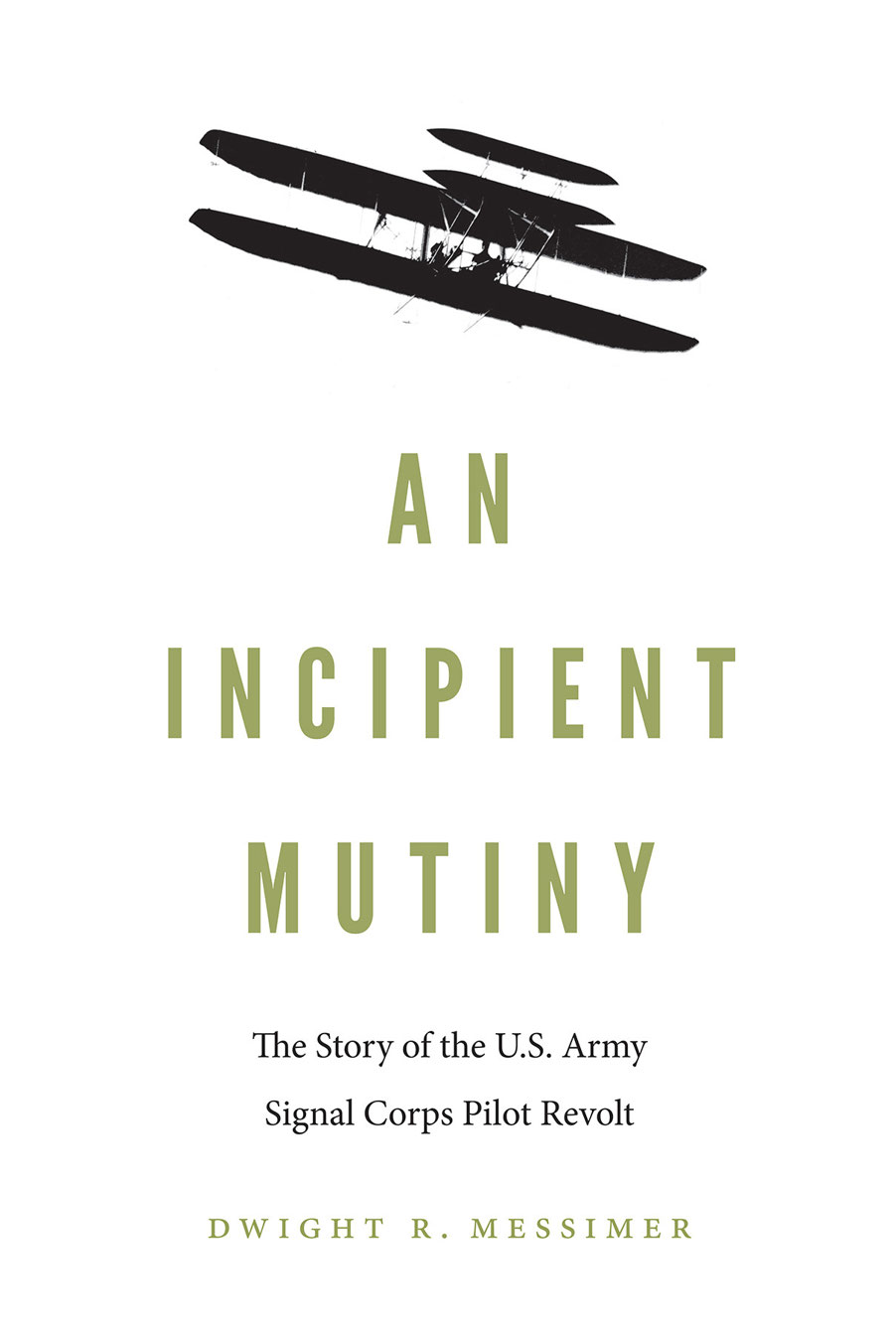
In an intensely human story of ambitions and bureaucratic infighting, Dwight Messimer has made an outstanding contribution to aviation history through his extensive research and detailed use of primary sources, army documents, and personal letters and accounts. It concludes with a masterful, edge-of-your-seat courtroom account rivaling The Court Martial of Billy Mitchell.
Cdr. Alan D. Zimm, U.S. Navy (Ret.), author of Attack on Pearl Harbor: Strategy, Combat, Myths, Deceptions
Drawing on long-neglected primary sources, Dwight Messimer tells the story of bureaucratic rivalry, personality clashes, and rival military theories that led to mutiny and scandal among the United States earliest U.S. Army aviators. A riveting story in itself, An Incipient Mutiny is a valuable addition to our understanding of why the United States, the worlds leader in aeronautics in 1903, fell so far behind the rest of the world in military aviation by World War I.
Jonathan Roth, author of Roman Warfare and director of the Charles Burdick Military History Project
In this straightforward, well-researched, and engaging work, Dwight Messimer highlights early U.S. military aviation challenges.... Focusing on a highly publicized court martial that facilitated Army Aviations much-needed reorganization, the author adroitly weaves the interplay of aircraft technology and aviation administrationboth in their infancywithin the context of legal precision and the full spectrum of human behaviors.
Forrest L . Marion, historian for the Air Force Historical Research Agency and author of Flight Risk: The Coalitions Air Advisory Mission in Afghanistan, 20052015
The Story of the U.S. Army Signal Corps Pilot Revolt
Dwight R. Messimer
Potomac Books
An imprint of the University of Nebraska Press
2020 by Dwight R. Messimer
Cover designed by University of Nebraska Press; cover image courtesy of the Library of Congress.
Author photo courtesy of the author.
All rights reserved. Potomac Books is an imprint of the University of Nebraska Press.
Library of Congress Cataloging-in-Publication Data
Names: Messimer, Dwight R., 1937 author.
Title: An incipient mutiny: the story of the U.S. Army Signal Corps pilot revolt / Dwight R. Messimer.
Other titles: Story of the U.S. Army Signal Corps pilot revolt
Description: Lincoln, NE: Potomac Books, an imprint of the University of Nebraska Press, [2020] | Includes bibliographical references and index.
Identifiers: LCCN 2019010306
ISBN 9781640122123 (cloth: alk. paper)
ISBN 9781640122567 (epub)
ISBN 9781640122574 (mobi)
ISBN 9781640122581 (pdf)
Subjects: LCSH: United States. Army. Signal Corps. Aviation SectionHistory. | Air pilots, MilitaryUnited StatesBiography. | United States. Army. Signal Corps. Aviation SectionCorrupt practices. | United States. Army. Signal Corps. Aeronautical DivisionHistory. | United States. Army. Signal CorpsBiography. | Air pilots, MilitaryUnited StatesHistory20th century. | Aeronautics, MilitaryUnited StatesHistory20th century.
Classification: LCC UG573 .M47 2020 | DDC 358/.24dc23
LC record available at https://lccn.loc.gov/2019010306
The publisher does not have any control over and does not assume any responsibility for author or third-party websites or their content.
To Luke Lutton, a good friend
This book covers the eleven years from the creation of the Signal Corps Aeronautical Division on 1 August 1907 to the establishment of the Air Service of the National Army, better known as the Air Service, on 29 May 1918. The focus is on the men and events that created the Goodier court-martial in 1915, brought about the Garlington Board and the Kennedy Committee in 1916, and ended with the U.S. Congresss aircraft production hearings in 1918. Those were the historical waypoints that led to army aviations total separation from the Signal Corps, the first step toward establishing an independent U.S. Air Force on 18 September 1947.
When the Signal Corps bought the Wrights Military Flyer (SC-1) on 2 August 1909, there was no legal or operational justification for the Signal Corps to have an airplane. There was only a vague idea that airplanes would somehow fit into the Signal Corps communications mission, leaving reconnaissance as the only possible use an airplane might have beyond carrying messages. But in 1909 reconnaissance was not included in the Signal Corps mission. More important, until 2 March 1913 there was no funding for this new undertaking. Until then, aviation was carried on by officers of the Signal Corps and officers detailed from the line without any recognition by law.
The first public indication that the chief signal officer (CSO) had no plan for developing military aviation appeared in his 1909 annual report, in which he wrote, The United States does not at present possess a modern aeronautical equipment, and it is believed that a systematic plan for the development of this military auxiliary for national defense should be inaugurated without delay. The word to note here is systematic. Because military aviation had been a part of the Signal Corps since 1907, it follows that the corps should have been already developing a systematic plan for military aviation. One can infer that the CSO was waiting for the War Department to formulate one, probably on the assumption that any plan the War Department came up with would be funded.
As it was, Brig. Gen. James Allen and the two following CSOs, Brig. Gen. George P. Scriven and Brig. Gen. George O. Squier, focused on reconnaissance as army aviations sole mission. They excluded arming airplanes with bombs and guns because weapons were not part of the reconnaissance mission. The result was discontent among the armys pilots over the lack of progress that grew into open rebellion and a movement to separate army aviation from the Signal Corps and make it the fourth arm of the line.
An obstacle to developing the airplanes full military potential stemmed from the conventional wisdom of the time: The United States, due to its isolated position, is not likely to become involved in a war, and therefore the most economical procedure, in aerial navigation, is to wait until other nations have determined upon the types best suited to military purposes, thus shifting the expense of experimentation and development to other nations.
In addition to that lackadaisical attitude were four other stumbling blocks. The first was the Congresss lack of interest in army aviation, which produced the second stumbling block, a reluctance in Congress to appropriate funds for its growth and development. The third stumbling block was the War Departments ongoing modernization of the army that gave new field artillery, improved ammunition, and modern small arms a higher priority on the budget ladder than aviation. The result was that other than a $5,000 appropriation for aviation in 1908, there were no congressional appropriations between 1908 and 1911. The fourth stumbling block was the Manchu Law that limited a line officers detail to aviation to four years. In his 1911 annual report, Brigadier General Allen wrote, In order to develop aviation it requires two essential things, namely, money and officers and men; either one of these without the other brings all adequate development to a standstill. In 1956 Thomas Milling wrote that the United States was consistently first in developing a military use for the airplane while being consistently last in utilizing these capabilities. This result was directly attributable to a lack of official support and money.
Next pageFont size:
Interval:
Bookmark:
Similar books «An Incipient Mutiny: The Story of the U.S. Army Signal Corps Pilot Revolt»
Look at similar books to An Incipient Mutiny: The Story of the U.S. Army Signal Corps Pilot Revolt. We have selected literature similar in name and meaning in the hope of providing readers with more options to find new, interesting, not yet read works.
Discussion, reviews of the book An Incipient Mutiny: The Story of the U.S. Army Signal Corps Pilot Revolt and just readers' own opinions. Leave your comments, write what you think about the work, its meaning or the main characters. Specify what exactly you liked and what you didn't like, and why you think so.

